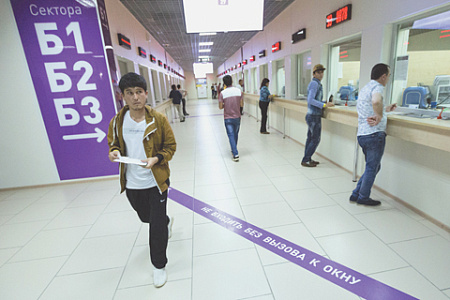
Since 2016, Russian-Uzbek relations have demonstrated impressive dynamics of development in all areas, in many ways being an exemplary example of building interaction between strategic partners. It is noteworthy that the key to the successful development of cooperation is the similarity of approaches to the global and regional agenda. In modern conditions, Tashkent and Moscow are interested in deepening regional cooperation and integration in Eurasia both within the post-Soviet space and in a broader format. This trend is manifested in deepening cooperation between Uzbekistan and the EAEU, integration in Central Asia, and the development and implementation of major trans-regional infrastructure projects, including the North–South transport Hub.
Uzbekistan and the Russian Federation also have a convergence of development interests between the two countries. Tashkent is facing the urgent task of modernizing and diversifying its economy, attracting foreign investors and technologies, ensuring energy security and expanding sales markets by deepening relations with partners and developing transport corridors. In turn, it is important for Moscow to diversify its foreign trade, open and expand new markets for technologies and goods, and strengthen cooperation with strategic and reliable partners amid the systemic crisis in relations between Russia and the West.
This intersection of interests contributes to the qualitative growth and deepening of Russian-Uzbek relations. Russia has been the largest investor in the republic’s economy for the past few years, second only to China in terms of turnover and number of companies. Moscow is becoming a strategic partner for Tashkent in the energy sector. Previously, such cooperation was ensured by the implementation of gas production projects by Russian companies Gazprom and LUKOIL, but now it includes the supply of electricity and natural gas to the republic, and an ambitious nuclear program involving the construction of nuclear power plants by Russian Rosatom. In recent years, Russia has consolidated its status as a key provider of educational services to the growing population of Uzbekistan. 14 Russian universities have opened their branches in the republic, and 63 thousand Uzbek students study at universities in the Russian Federation.
For its part, Uzbekistan is a reliable supplier of agricultural products, a number of minerals that are strategically important for the Russian economy, and machine-building products. The most important thing for the two countries is cooperation in the field of labor migration. In this way, Uzbekistan solves the problem of labor redundancy and unemployment, and for Russia it is an opportunity to cover the shortage of personnel in the labor market. In recent years, this area has been the focus of Governments. The partners are striving to streamline the flow of labor migrants from Uzbekistan by providing conditions for targeted recruitment and training of specialists for projects in Russia while still in Uzbekistan.
Joint projects in the Afghan sector look strategic for the two countries today. Uzbekistan, as part of its strategy to expand export destinations through the development of transport corridors, has been the main lobbyist for the construction of trans-Afghan infrastructure projects for several years. For Russia, after the hasty withdrawal of the United States from Afghanistan, on the one hand, as well as the systemic curtailment of cooperation with European countries, the task is to expand opportunities for trade and interaction with the countries of the global South. After the removal of the ruling Taliban movement in Afghanistan from the list of terrorist organizations, restrictions on the implementation of major projects and political interaction with the country are formally lifted for Russia. In such circumstances, a completely new direction for strategic cooperation opens up for Russia and Uzbekistan in the form of projects in Afghanistan, in particular, the trans-Afghan railway, which will qualitatively improve connectivity in the center of Eurasia.
